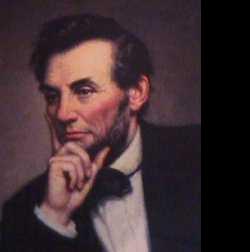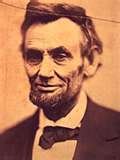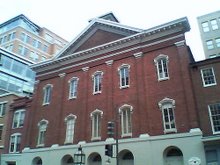
The month of September offered many challenges for Lincoln during the Civil War. On September 2, 1862, Lincoln put McClellan in charge of defending the city of Washington. Putting McClellan in charge of anything was always risky business.
The Battle of South Mountain began on September 14, 1862, as part of the Maryland Campaign, with Antietam well overshadowing it in casualties on September 17, 1862.
Lincoln prepared the Emancipation Proclamation on September 22, 1862, many months before its signing on January 1, 1863.
One bright spot in the Civil War was the presentation of a Bible by a committee of African American citizens from Baltimore on September 7, 1864, in Washington. The inscription read: "To Abraham Lincoln, President of the United Sates, the Friend of Universal Freedom, from the Loyal Colored People of Baltimore, as a token of respect and Gratitude." The donors said "since our incorporation into the American family, we have been true and loyal." This must have been a consoling word to hear, since Baltimore was considered so volatile that the inaugural train would not even stop at the Calvert Street Station in 1861.
Of course, the Lincoln-Douglas debates were held September 15, 1858, and Lincoln advocated the repeal of the Kansas-Nebraska Act on September 2, 1854 in Jacksonville, Illinois. Still interested? No? Just wait 'til October gets here.









No comments:
Post a Comment